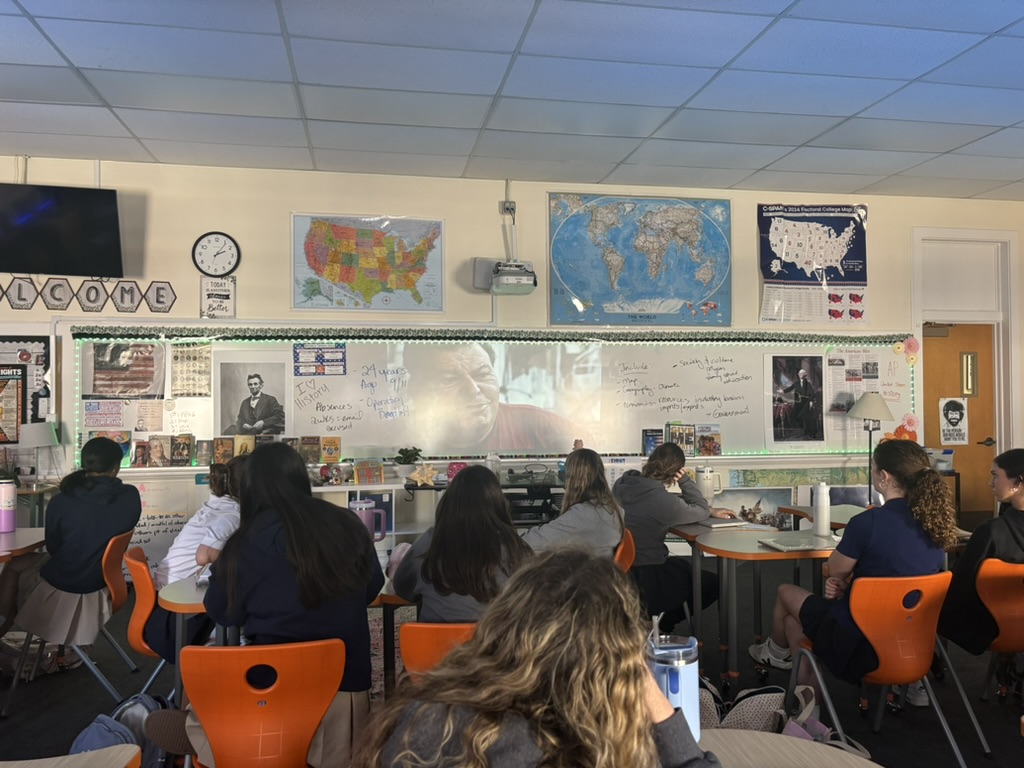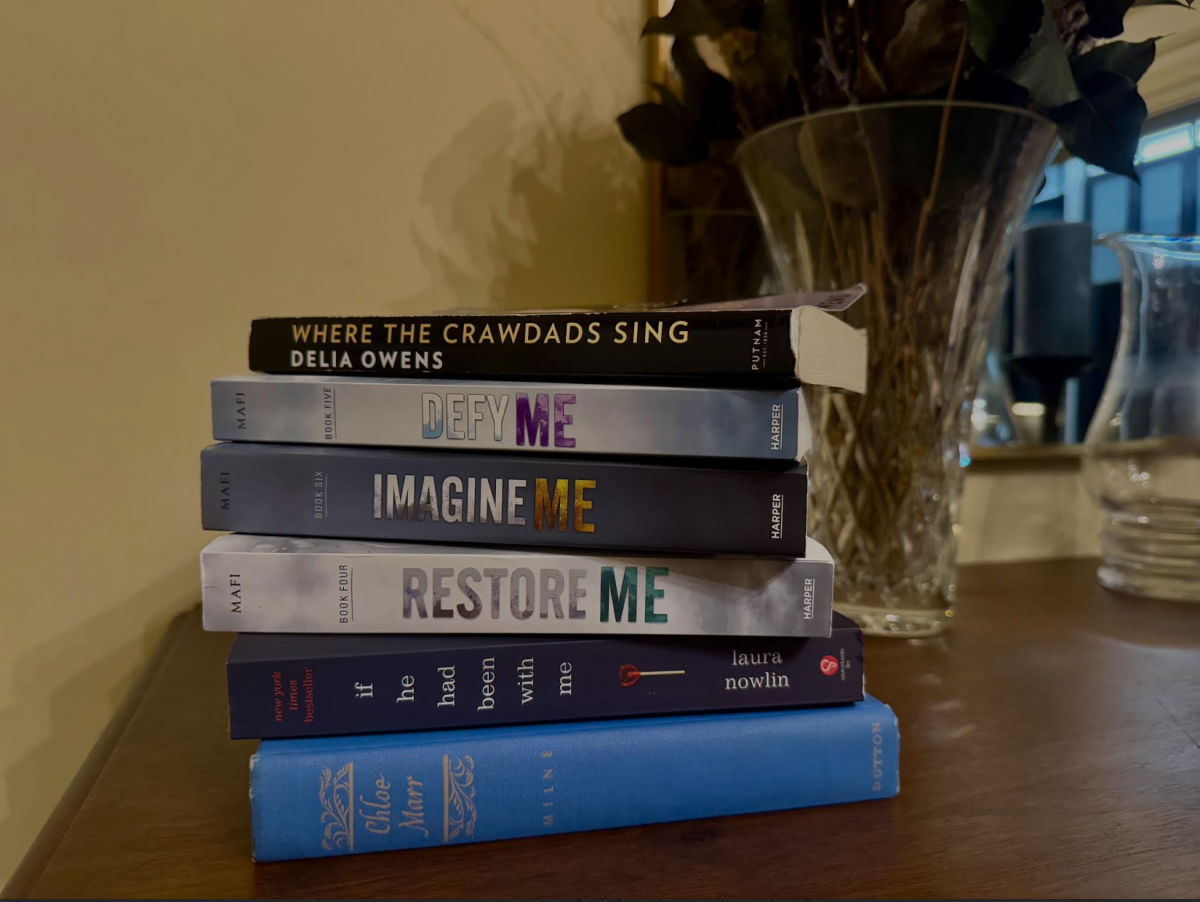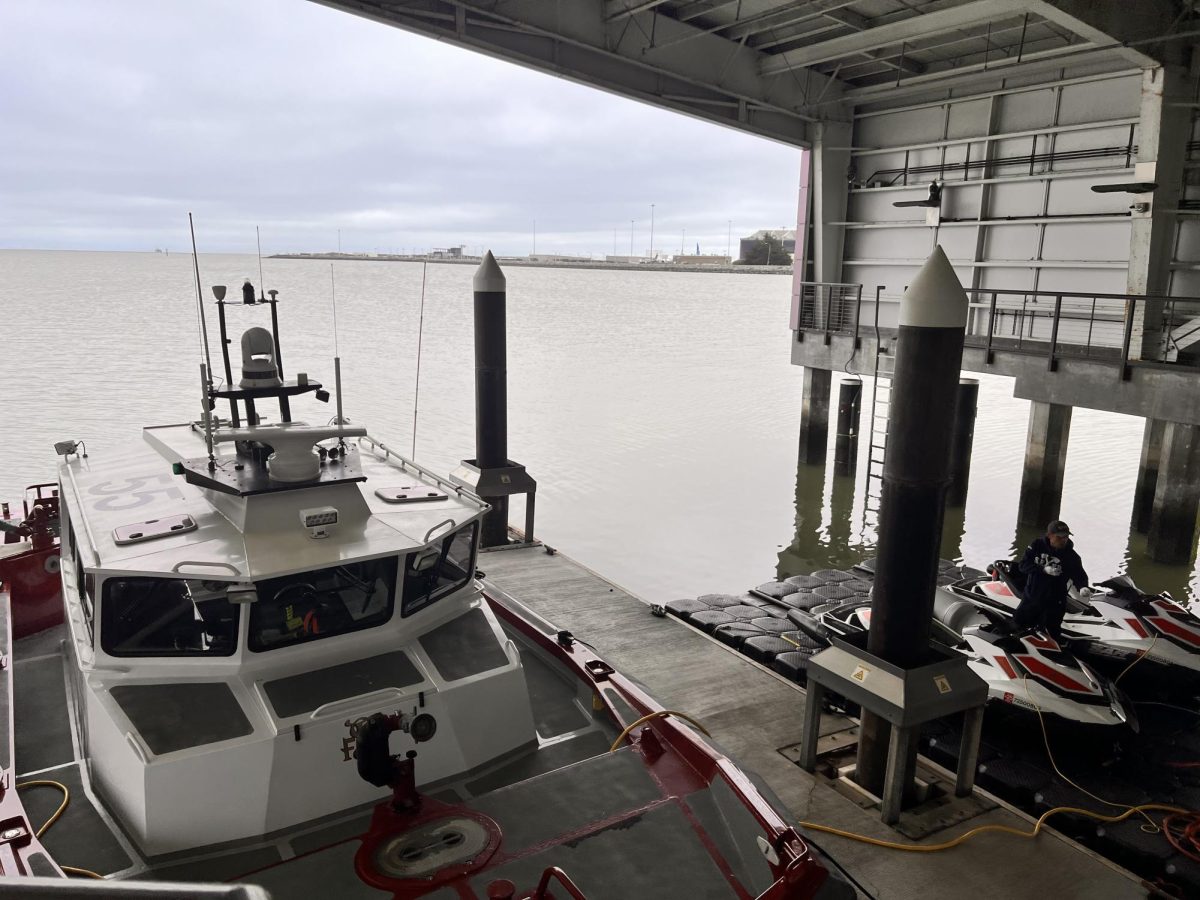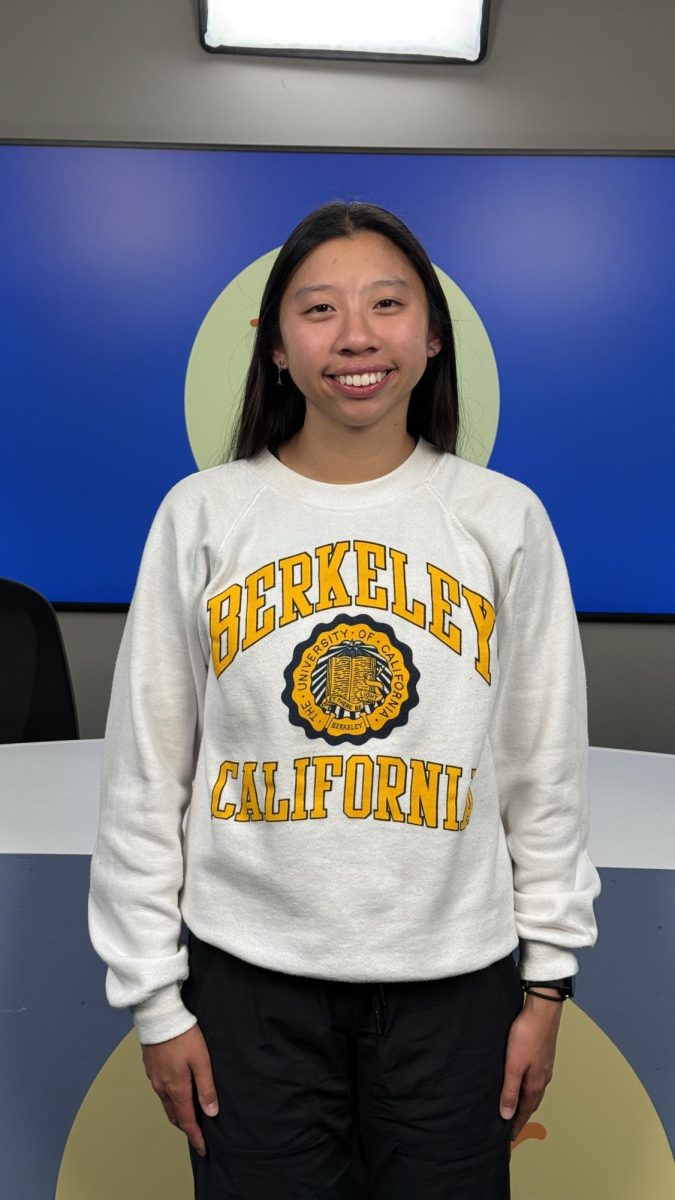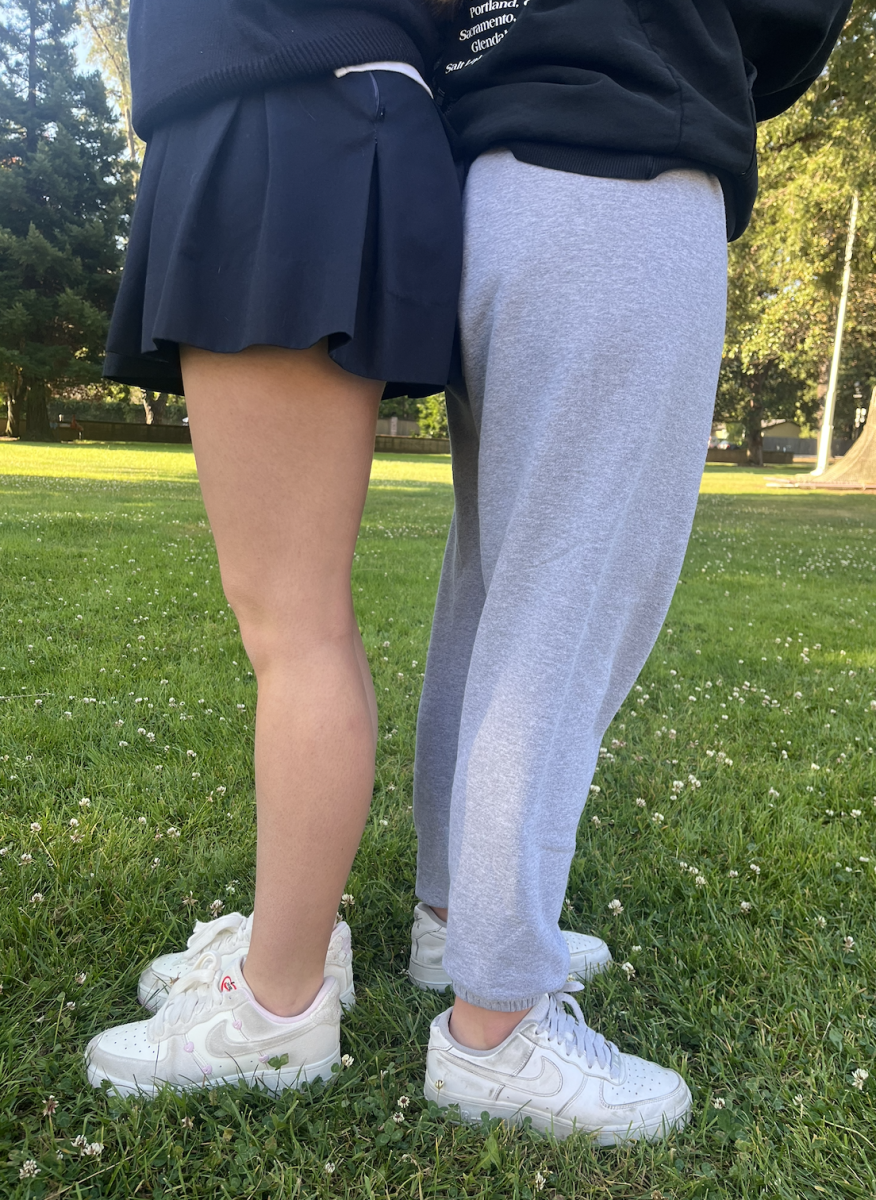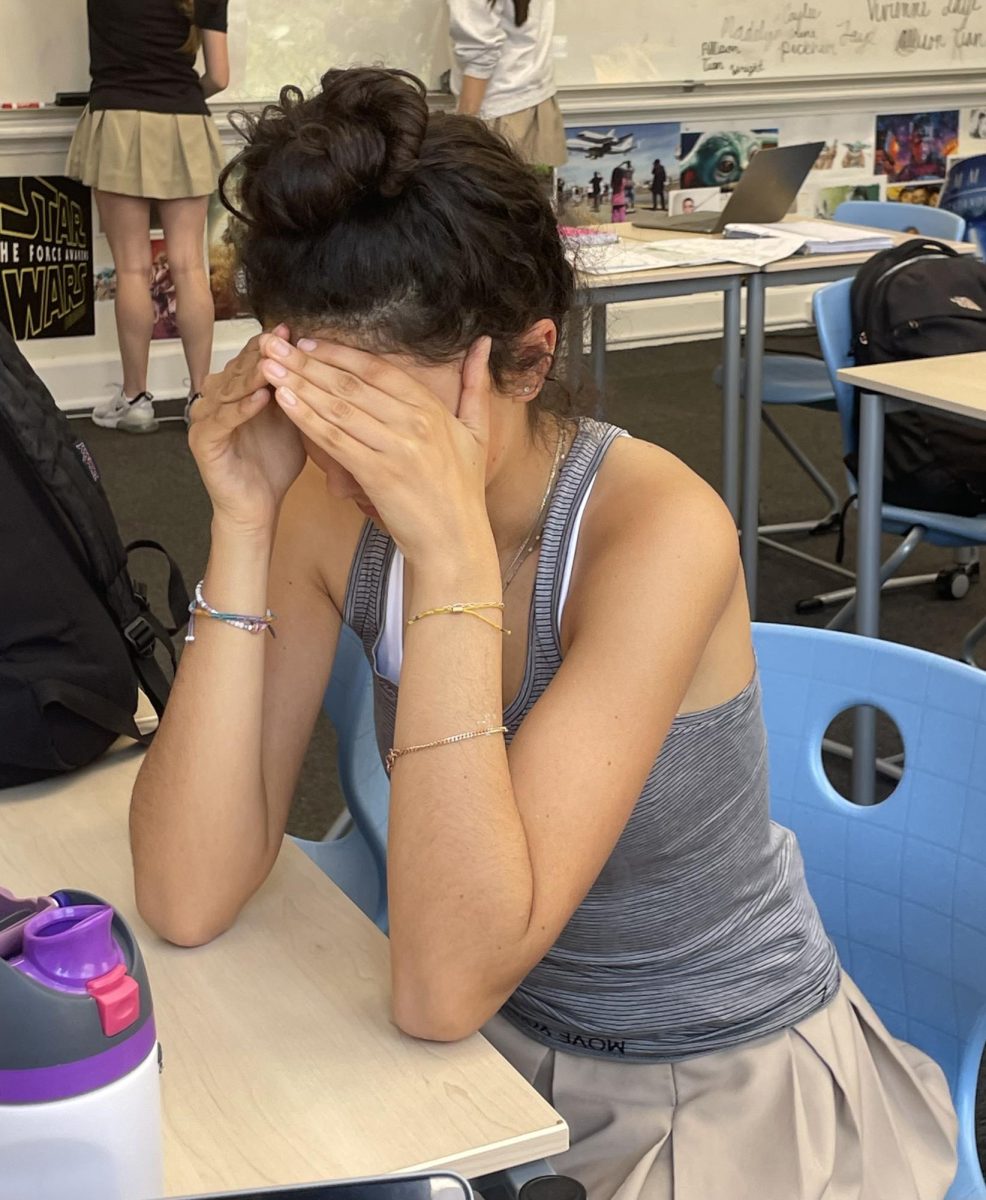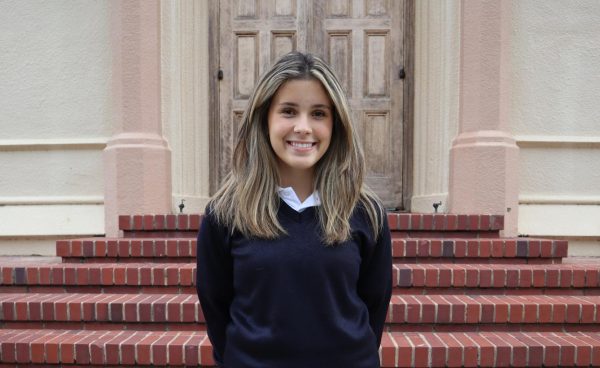Anna Gavidia, World Languages Department

The Catalyst (TC): What is your motivation to overcome societal pressures on women?
Anna Gavidia (AG): I think my motivation is to see the disparity that still exists. And so that motivates me to motivate you guys and to empower you guys. So, that’s my motivation. It’s you guys, right? It’s the students. There’s not so much “What can I get out of it?” It’s “What can I help you get out of it?” so that you don’t go through as many hardships as other women have gone through in order to achieve whatever goal it is that you want to achieve.
TC: How has working at an all-girls school benefited you?
AG: Just like you, I am surrounded by women here at the school, and [sexism] is not a factor as much as it would be in another environment. So, it is nice and empowering to see other women that are very strong, that speak their minds and that f
ollow their heart — which is what we all should be doing.
TC: What are your observations regarding society’s pressures on women? How have they changed since you were in high school?
AG: So, social media has made a complete different mockery out of what we used to call pressures. What we experienced was nothing compared to what you guys are bombarded with on a daily basis … We could detach ourselves, go home and not be surrounded by all of these pressures, but [now students] don’t have that luxury.
Jennifer Walton, Math Department

The Catalyst (TC): How have you experienced sexism?
Jennifer Walton (JW): I feel like math is very male-dominated, and so is engineering. I remember having a high school teacher who, when I said I wanted to become an engineer, asked me why I would ever want to do that. I also remember my s
ister had a counselor in high school who basically told
her she shouldn’t go to college. I always thought that was crazy. So, in instances like those, I have always tried to look for positive people to surround me with and people who can tell me, “Yes, you can do it” as opposed to “No, you can’t.” I feel like, sometimes, people tell you no, even though you know you can do it. Don’t let it stop you. Just go for it. I think we are more than capable.
TC: What have you learned from being a working woman?
JW: I think it is sometimes hard when you think about all of the things women have to do, especially when you are a mother: You are taking care of the kids, taking care of the house and taking care of your job and husband. It is a lot of things, and I feel that sometimes women are expected to be like a superwoman and do everything. I think every woman should realize that, if you have taken on too much, you need to step back and know that, sometimes, it is okay to say no. In my experience, I have found that, sometimes, I have been asked to do a lot at work, and I am also trying to do fun things. So, finding that balance was really important to me.
Isabelle Haithcox, Science Department

The Catalyst (TC): Have you ever faced sexism in a learning environment?
Isabelle Haithcox (IH): One example I clearly remember in college:
I had a physics teacher who would not take the women students seriously. As a chemistry major, I had to take physics with other STEM majors as well. And, there were mostly men. I remember I was enrolled in a class of 50 or 60 people and only five of us were women. And, it was maddening. It was the most frustrating thing I had ever experienced. I went to an all-girls high school, which was wonderful for me because I was able to develop my voice. I was empowered. I knew how to ask questions, and I knew how to speak up. So, to have this man not take my question seriously … was absolutely maddening to me. I decided then that, if I ever went into teaching, I would never treat students like that. I would never make them feel that they weren’t heard or that they weren’t taken seriously, no matter what.
TC: How did you become confident in a male-dominated field?
IH: An all-girl education made such a difference for me because I knew I wanted to go into science, even in high school. And, we could all speak up, we could all ask questions, we could all do different things we were interested in and we were never frowned upon. We were never told like, “No, no, let’s have that boy answer instead.” There were no worries about any of that. And, that was very helpful for me. Definitely.
Christina Okubo ‘96, Athletics Program
TC: What obstacles have you faced in your career path?
Christina Okubo (CO): I’d say there’s a little bit more of an “old boys club” feel with athletic directors. It’s predominantly about 80% men who are in the athletic director role at the high school level, but we’re seeing more women enter the field. I have definitely seen how some of the men in this area of work get treated differently than some of the women.
TC: What is a lesson you have learned from overcoming such obstacles?
CO: One thing I learned from going to school here was, if there’s something you want to do that you know you’re capable of doing, you can do it. If you believe in yourself, you earn the respect just by being a hard worker, speaking your mind and being honest and truthful. I think people really respect that, at least, in the field of athletics. Regardless of gender, you can be respected because you can be your authentic self and people will respect your expertise.
TC: What advice would you give to a young woman entering a male-dominated profession?
CO: I think it’s really easy to feel insecure if you’re entering a profession or a field that is male-dominated. I would say follow your passions and what is important to you because, really, if you have the drive and the motivation to follow what your passion is, you can get there. I think part of it is just having the belief that you can do it.


